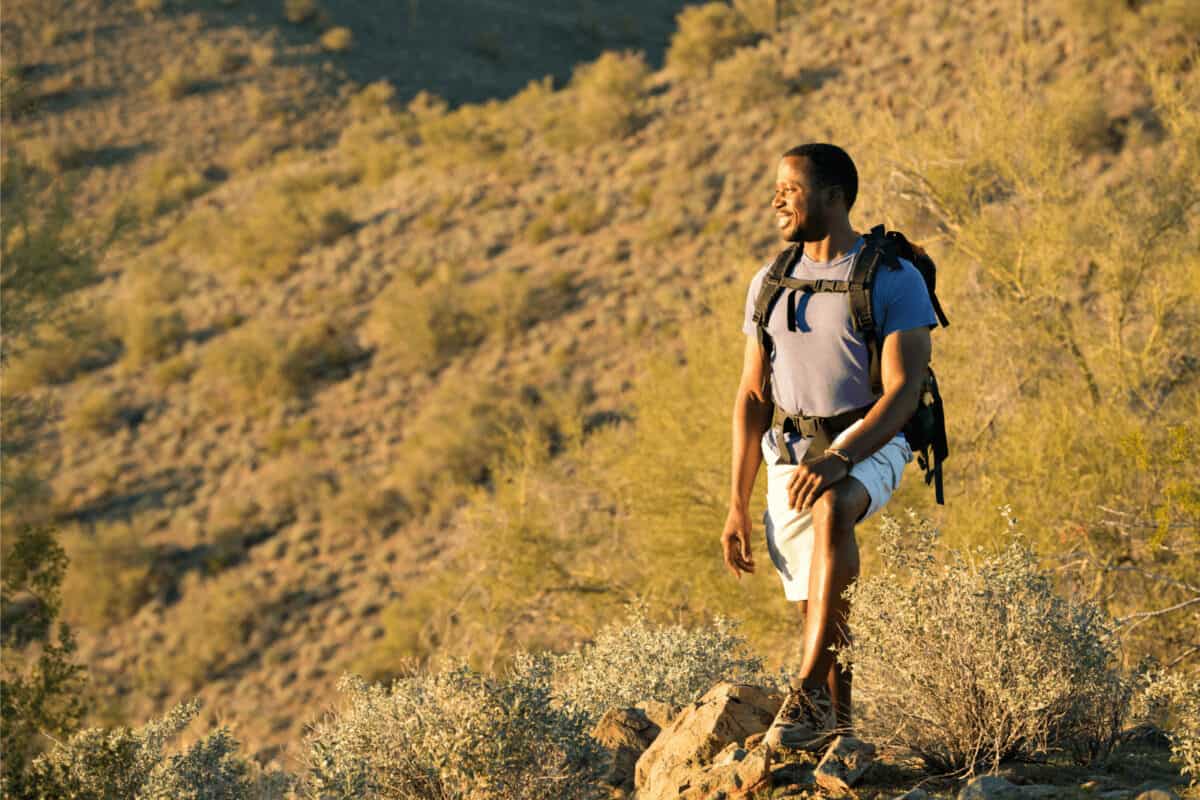- Making the Most of Your Patio with Stylish and Functional Shade Solutions - February 16, 2025
- How Shade Screens Can Help Reduce Cooling Costs with SRP Rebates - February 5, 2025
- The Health Benefits of Using Sunshades - January 26, 2025
Arizona, the Grand Canyon State, is renowned for its stunning landscapes, vibrant cities, and, unfortunately, its scorching sun. The state’s arid climate and abundant sunshine are part of its unique charm, but they also pose significant risks to those who underestimate the power of the sun. In this article, we will explore the dangers of sun exposure in Arizona without shade and the importance of sun safety practices.
The Arizona Sun: A Force to Be Reckoned With
Arizona boasts approximately 300 days of sunshine each year, making it an ideal destination for outdoor enthusiasts and sunseekers alike. However, it’s crucial to recognize that the Arizona sun can be unforgiving, especially during the scorching summer months. Here are some reasons why:
Intense UV Radiation
Arizona’s clear skies allow for high levels of ultraviolet (UV) radiation to penetrate the Earth’s surface. This intense UV exposure can lead to various health problems, including sunburn, premature aging, and an increased risk of skin cancer.
High Temperatures
The combination of extreme temperatures and relentless sunshine can result in a deadly duo. During the summer, temperatures in Arizona can soar well above 100 degrees Fahrenheit (37 degrees Celsius). Prolonged exposure to such heat can lead to heat-related illnesses, such as heat exhaustion and heatstroke.
Dry Climate
Arizona’s arid climate exacerbates the effects of sun exposure. Dry air can cause dehydration, increasing the risk of heat-related issues and making it more challenging for the body to cool down through sweating.
The Dangers of Sun Exposure Without Shade
- Skin Damage
Unprotected sun exposure in Arizona can lead to immediate and long-term skin damage. Sunburn is a common consequence of spending too much time outdoors without adequate protection. It causes pain, redness, and peeling, but more importantly, it increases the risk of skin cancer.
Over time, chronic sun exposure can result in premature aging, characterized by wrinkles, fine lines, and age spots. These visible signs of aging are often attributed to UV radiation, which breaks down collagen and elastin fibers in the skin.
- Skin Cancer Risk
Skin cancer is a significant concern in Arizona, given its climate and sun exposure levels. The most common types of skin cancer, including basal cell carcinoma, squamous cell carcinoma, and melanoma, are all strongly linked to UV radiation.
Melanoma, in particular, is a highly aggressive form of skin cancer that can spread rapidly if not detected and treated early. Regular exposure to the Arizona sun without protection can significantly increase your risk of developing skin cancer.
- Heat-Related Illnesses
In Arizona, shade isn’t just about protecting your skin; it’s also about safeguarding your overall health. Prolonged sun exposure without relief from the heat can lead to various heat-related illnesses:
- Heat Exhaustion: This condition can manifest as heavy sweating, weakness, dizziness, and nausea. If not addressed promptly, it can progress to heatstroke.
- Heatstroke: Heatstroke is a medical emergency that requires immediate attention. It is characterized by a high body temperature, altered mental state, confusion, rapid pulse, and loss of consciousness. Without intervention, it can be fatal.
- Dehydration
Arizona’s dry climate and intense sun can lead to rapid dehydration, even if you don’t feel thirsty. Dehydration can cause symptoms like dry mouth, dark urine, fatigue, and confusion. In severe cases, it can lead to heat-related illnesses and other health complications.
Sun Safety Tips for Arizona
While the dangers of sun exposure in Arizona are clear, there are several steps you can take to protect yourself and enjoy the state’s natural beauty safely:
- Seek Shade
Whenever possible, seek shade during the hottest parts of the day, typically between 10 a.m. and 4 p.m. Shade can provide a much-needed break from the sun’s intense rays and help prevent heat-related illnesses.
- Wear Sunscreen
Apply a broad-spectrum sunscreen with an SPF (Sun Protection Factor) of 30 or higher to all exposed skin, including your face, neck, and ears. Reapply every two hours, especially if you’re swimming or sweating.
- Cover Up
Wear lightweight, long-sleeved clothing and wide-brimmed hats to shield your skin from direct sunlight. Don’t forget to protect your eyes with sunglasses that provide UV protection.
- Stay Hydrated
Drink plenty of water throughout the day to stay hydrated. Avoid excessive alcohol and caffeine consumption, as they can contribute to dehydration.
- Plan Outdoor Activities Wisely
If possible, plan outdoor activities during the cooler hours of the day, such as early morning or late afternoon. This reduces your exposure to the harshest sunlight.
- Know Your Limits
Listen to your body and recognize the signs of heat-related illnesses. If you or someone you’re with experiences symptoms like dizziness, nausea, or confusion, seek shade, hydrate, and consider seeking medical attention if the symptoms persist.
- Regular Skin Checks
Perform regular self-examinations of your skin to monitor for any changes, such as new moles or skin growths. If you notice anything unusual, consult a dermatologist promptly.
Final Thoughts
While Arizona’s abundant sunshine is undoubtedly inviting, it comes with inherent risks. Understanding the dangers of sun exposure in Arizona without shade and adopting sun safety practices can help you enjoy all that this beautiful state has to offer while safeguarding your health. Remember, it’s not just about staying sun-kissed; it’s about staying sun-safe. By taking precautions and respecting the power of the Arizona sun, you can make the most of your time in the Grand Canyon State while minimizing the risks associated with sun exposure.
We hope you enjoyed this article and found it both useful and insightful. If you have questions about how you can create a shaded oasis for you and your family, please contact us!

